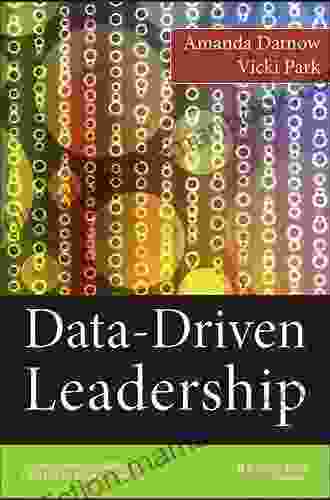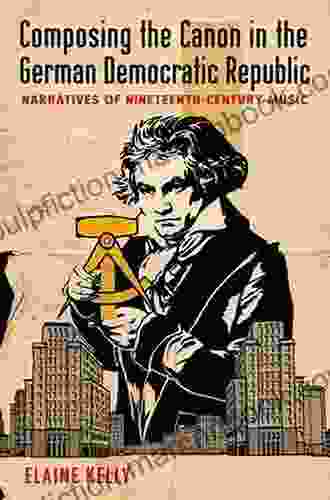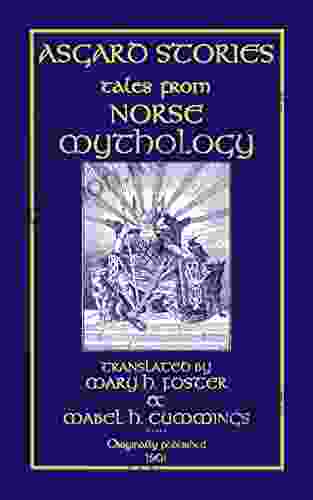Composing the GDR Canon: Negotiating Memory, Identity, and Legitimacy in East German Music

The German Democratic Republic (GDR),established in 1949, presented a unique and complex cultural landscape where the construction of a distinct musical canon became a crucial aspect of its political and ideological agenda. This article explores the process of canon formation in the GDR, examining how music was selectively appropriated, interpreted, and disseminated to shape a national identity and legitimize the socialist state. By analyzing the role of institutions, composers, and audiences, we delve into the intricate interplay between music, politics, and memory in East Germany.
The Role of Institutions: Shaping the Musical Landscape
The GDR's cultural apparatus played a central role in orchestrating the musical canon. The State Committee for Arts played a supervisory role, regulating musical production, distribution, and performance. Through institutions such as the Verband Deutscher Komponisten und Musikwissenschaftler (VDK) and the Deutscher Musikrat, the state exerted control over musical organizations, setting aesthetic standards and promoting works aligned with socialist ideology.
4.2 out of 5
| Language | : | English |
| File size | : | 3575 KB |
| Text-to-Speech | : | Enabled |
| Enhanced typesetting | : | Enabled |
| Word Wise | : | Enabled |
| Lending | : | Enabled |
| Screen Reader | : | Supported |
| Print length | : | 264 pages |
| Item Weight | : | 10.6 ounces |
| Dimensions | : | 8.07 x 0.87 x 5.67 inches |
Music education was also a key mechanism for shaping the canon. Schools emphasized the study of classical and folk music deemed "progressive" and "revolutionary," while downplaying or omitting works associated with Western capitalist culture. This educational system nurtured a generation of musicians and audiences with a specific understanding of musical heritage.
Composers: Negotiating the Socialist Musical Aesthetic
Within the GDR's musical landscape, composers faced the challenge of balancing artistic expression with political expectations. Some composers, such as Hanns Eisler and Ernst Hermann Meyer, embraced socialist aesthetics, incorporating elements of working-class music and revolutionary anthems into their compositions. They sought to create a musical language that reflected the values of the socialist society.
Others, however, pursued a more subtle approach, using abstract or dissonant styles to convey personal and expressive ideas. Contemporary music festivals, such as the Berliner Festtage, provided a platform for these composers to experiment and explore new musical possibilities.
Audiences: Constructing and Consuming the Canon
The GDR's musical canon was not merely imposed from above but also shaped by audiences. Socialist organizations, such as the Freie Deutsche Jugend (FDJ),organized youth concerts, introducing a wider section of the population to classical music. The state also promoted the creation of new concert halls and opera houses, making live performances accessible to a larger audience.
Audiences played an active role in legitimizing the canon. They attended concerts, purchased recordings, and participated in music clubs. This engagement with the music helped define the boundaries of the canon, reinforcing the idea of a shared musical heritage and national identity.
Memory and Identity: Music as a Narrative of Nationhood
Music played a crucial role in shaping collective memory and forging a sense of national identity in the GDR. State-sponsored concerts and festivals commemorated historical events and celebrated socialist heroes, creating a narrative of progress and revolutionary struggle. The canon included works that evoked the horrors of Nazi Germany and the suffering of the working class, serving as a reminder of the past and a call to action in the present.
Through music, the GDR sought to construct a distinct cultural identity that differentiated it from West Germany. This identity was rooted in the idea of a "socialist nation," united by a shared musical heritage and a common struggle for a better future.
Legitimacy and Dissent: Music as a Tool of Control and Resistance
The musical canon in the GDR also served as a tool of legitimation for the socialist state. By appropriating and reinterpreting musical traditions, the state claimed cultural continuity and sought to justify its political authority. Music became a symbol of the GDR's cultural achievements, used to showcase its progress and bolster its international reputation.
However, the canon was not without its dissenters. Some composers and musicians found the restrictions on artistic expression stifling. They sought refuge in the underground or emigrated to West Germany, where they could pursue their musical ambitions more freely. The GDR's musical landscape thus became a site of both conformity and resistance, reflecting the tensions between individual autonomy and collective ideology.
The construction of the musical canon in the GDR was a complex and multifaceted process that involved a delicate balance between political agendas, artistic expression, and audience reception. Institutions, composers, and audiences played interconnected roles in shaping this canon, which served as a tool for forging a national identity, legitimizing the socialist state, and negotiating memory and dissent.
By examining the interplay of music, politics, and memory in the GDR, we gain insights into how cultural forms are shaped by ideology, power dynamics, and the aspirations of individuals and communities. The GDR's musical canon stands as a testament to the power of music to both reflect and shape the contours of a nation's cultural and political landscape.
4.2 out of 5
| Language | : | English |
| File size | : | 3575 KB |
| Text-to-Speech | : | Enabled |
| Enhanced typesetting | : | Enabled |
| Word Wise | : | Enabled |
| Lending | : | Enabled |
| Screen Reader | : | Supported |
| Print length | : | 264 pages |
| Item Weight | : | 10.6 ounces |
| Dimensions | : | 8.07 x 0.87 x 5.67 inches |
Do you want to contribute by writing guest posts on this blog?
Please contact us and send us a resume of previous articles that you have written.
 Top Book
Top Book Novel
Novel Fiction
Fiction Nonfiction
Nonfiction Literature
Literature Paperback
Paperback Hardcover
Hardcover E-book
E-book Audiobook
Audiobook Bestseller
Bestseller Classic
Classic Mystery
Mystery Thriller
Thriller Romance
Romance Fantasy
Fantasy Science Fiction
Science Fiction Biography
Biography Memoir
Memoir Autobiography
Autobiography Poetry
Poetry Drama
Drama Historical Fiction
Historical Fiction Self-help
Self-help Young Adult
Young Adult Childrens Books
Childrens Books Graphic Novel
Graphic Novel Anthology
Anthology Series
Series Encyclopedia
Encyclopedia Reference
Reference Guidebook
Guidebook Textbook
Textbook Workbook
Workbook Journal
Journal Diary
Diary Manuscript
Manuscript Folio
Folio Pulp Fiction
Pulp Fiction Short Stories
Short Stories Fairy Tales
Fairy Tales Fables
Fables Mythology
Mythology Philosophy
Philosophy Religion
Religion Spirituality
Spirituality Essays
Essays Critique
Critique Commentary
Commentary Glossary
Glossary Bibliography
Bibliography Index
Index Table of Contents
Table of Contents Preface
Preface Introduction
Introduction Foreword
Foreword Afterword
Afterword Appendices
Appendices Annotations
Annotations Footnotes
Footnotes Epilogue
Epilogue Prologue
Prologue Patrick Bruskiewich
Patrick Bruskiewich Robin Wright
Robin Wright Bryan A Garner
Bryan A Garner Noah Eli Gordon
Noah Eli Gordon Peter Aronson
Peter Aronson Aric Davis
Aric Davis Al Ries
Al Ries Daryl Davis
Daryl Davis Keith Sullivan
Keith Sullivan Shelley Hale Lee
Shelley Hale Lee James Kennedy
James Kennedy Mars Archer
Mars Archer Luigi Stecco
Luigi Stecco Paul Howarth
Paul Howarth Elias Dabbas
Elias Dabbas Jeffrey Benson
Jeffrey Benson Stewart Pink
Stewart Pink Monica Burns
Monica Burns Katherine Jeffries
Katherine Jeffries Tom Watson
Tom Watson
Light bulbAdvertise smarter! Our strategic ad space ensures maximum exposure. Reserve your spot today!
 Ivan TurgenevFollow ·3.4k
Ivan TurgenevFollow ·3.4k Stuart BlairFollow ·15.1k
Stuart BlairFollow ·15.1k Garrett BellFollow ·16k
Garrett BellFollow ·16k Jace MitchellFollow ·9.3k
Jace MitchellFollow ·9.3k Seth HayesFollow ·9.2k
Seth HayesFollow ·9.2k Ralph Waldo EmersonFollow ·5.7k
Ralph Waldo EmersonFollow ·5.7k Paulo CoelhoFollow ·15.7k
Paulo CoelhoFollow ·15.7k Leon FosterFollow ·19.4k
Leon FosterFollow ·19.4k

 Joseph Conrad
Joseph ConradExport Now: Five Keys to Entering New Markets
Are you looking to expand your business into...
 Christopher Woods
Christopher WoodsElvis Presley: The King of Rock and Roll and an Icon of...
Elvis Presley was an...

 Kelly Blair
Kelly BlairData-Driven Leadership: A Comprehensive Guide for...
In today's rapidly changing educational...

 Joe Simmons
Joe Simmons37 Stories of Canine Companionship and Courage
Dogs have been our...

 Martin Cox
Martin CoxChilling Psychological Thriller With Twist: Brace...
Prepare yourself for...
4.2 out of 5
| Language | : | English |
| File size | : | 3575 KB |
| Text-to-Speech | : | Enabled |
| Enhanced typesetting | : | Enabled |
| Word Wise | : | Enabled |
| Lending | : | Enabled |
| Screen Reader | : | Supported |
| Print length | : | 264 pages |
| Item Weight | : | 10.6 ounces |
| Dimensions | : | 8.07 x 0.87 x 5.67 inches |














